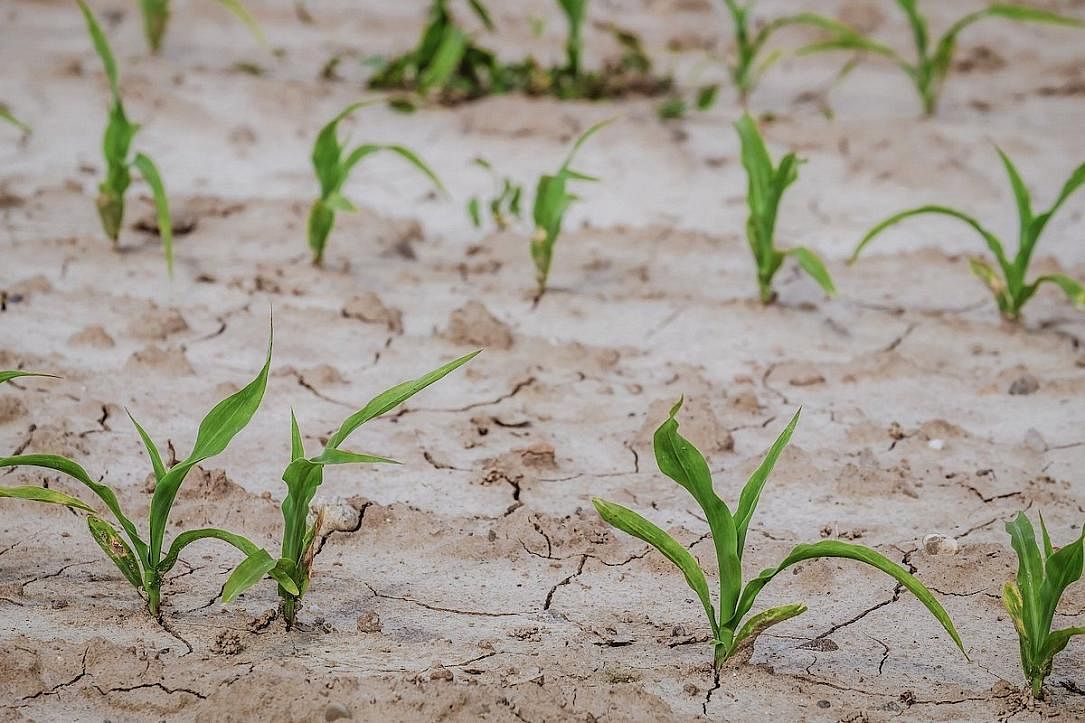
A recent study conducted by the Department of Geography at Vidya Pratishthan’s Arts, Science and Commerce College in Baramati has highlighted the alarming consequences of human-induced drought on agricultural productivity in Maharashtra's semi-arid region.
The study emphasizes the declining water tables, rising temperatures, and changing crop patterns as key factors negatively impacting agricultural output in the area. Historically dependent on rainfed agriculture, the region has witnessed a shift toward water-intensive crops such as sugarcane, onion, wheat, and maize, which has temporarily improved economic conditions but poses long-term risks.
The study, published in the latest issue of Springer Nature’s journal 'Regional Environmental Change', analyzed data from seven of Maharashtra's driest districts, including Pune, Sangli, Osmanabad, Beed, Satara, Solapur, and Ahmednagar, where the mean annual rainfall is below 700 mm. It warns of a "very likely" increase in human-induced drought along the Sina, Karha, Yerala, Man, and Agrani river basins in southern Madhya Maharashtra. This trend has been evident since 2000, exacerbating the challenges faced by the region.
Rahul Todmal, the assistant professor of geography and author of the study, highlights the evolving scenario in the past two decades with government and non-government support, including the adoption of irrigation ponds and borewells for water-intensive crops. However, the study reveals that this approach will have larger implications in the coming decades. The region is already experiencing significant water and heat stress, resulting in counterproductive outcomes for the currently favored crops.
One critical aspect of the study focuses on the occurrence of "plant heat stress" (PHS) days, which indicates the number of days crops are exposed to temperatures beyond their tolerance levels. The study reveals a consistent increase in PHS days by two to five every decade, particularly affecting crops like sugarcane, onion, wheat, and maize, which thrive in cooler temperatures. Concurrently, the groundwater table is depleting at a rate of approximately 7 cm per year, far surpassing its replenishment capacity and further compromising crop yields.
The projections are based on data obtained from various sources, including the India Meteorological Department, the Hydrological Data Users Group, the State Agriculture Department, the Indian Institute of Tropical Meteorology, the Groundwater Survey and Development Agency, and the National Oceanic and Atmospheric Administration of the USA.
Todmal explains that adverse impacts on the yield of cash crops will be imminent, with projected temperature rises of around 1.05 degrees Celsius over the study area by 2050, exacerbating water scarcity issues and impacting rainfed crops as well. Sugarcane productivity is expected to decline by approximately 20% within this timeframe, while rainfed sorghum could experience a decline of up to 18%. The study emphasizes the need to promote the cultivation of hardier crops like jowar and bajra to mitigate the crisis.
While acknowledging the commercial perspective of agriculture, Todmal urges caution, highlighting the potential for unsustainable agricultural water demand resulting from changes in farmers' preferences. He suggests making it mandatory for farmers to adopt modern water-saving techniques such as drip irrigation and sprinklers. Additionally, implementing zoning based on water availability and designing policies to regulate or promote specific crops could be effective strategies employed by the agriculture department.
The findings of this study serve as a clarion call for proactive measures to address the challenges posed by human-induced drought in Maharashtra's semi-arid region. The sustainable management of water resources and a shift toward resilient crop choices are vital for the long-term viability and prosperity of the agricultural sector in the area.
















